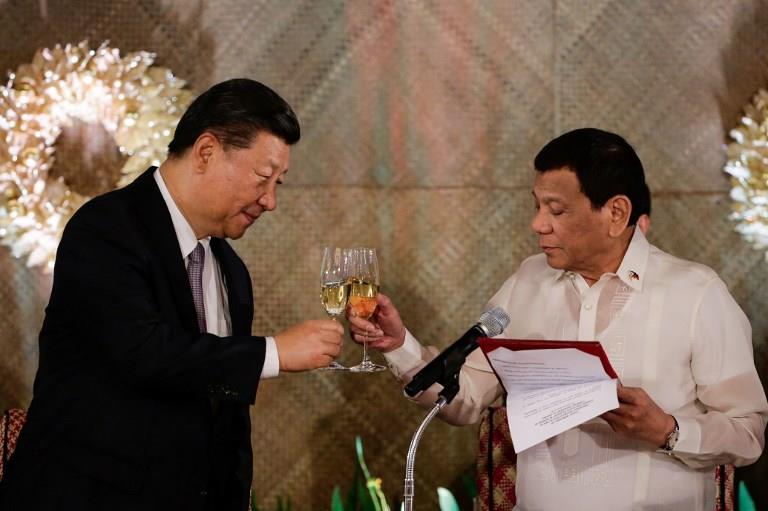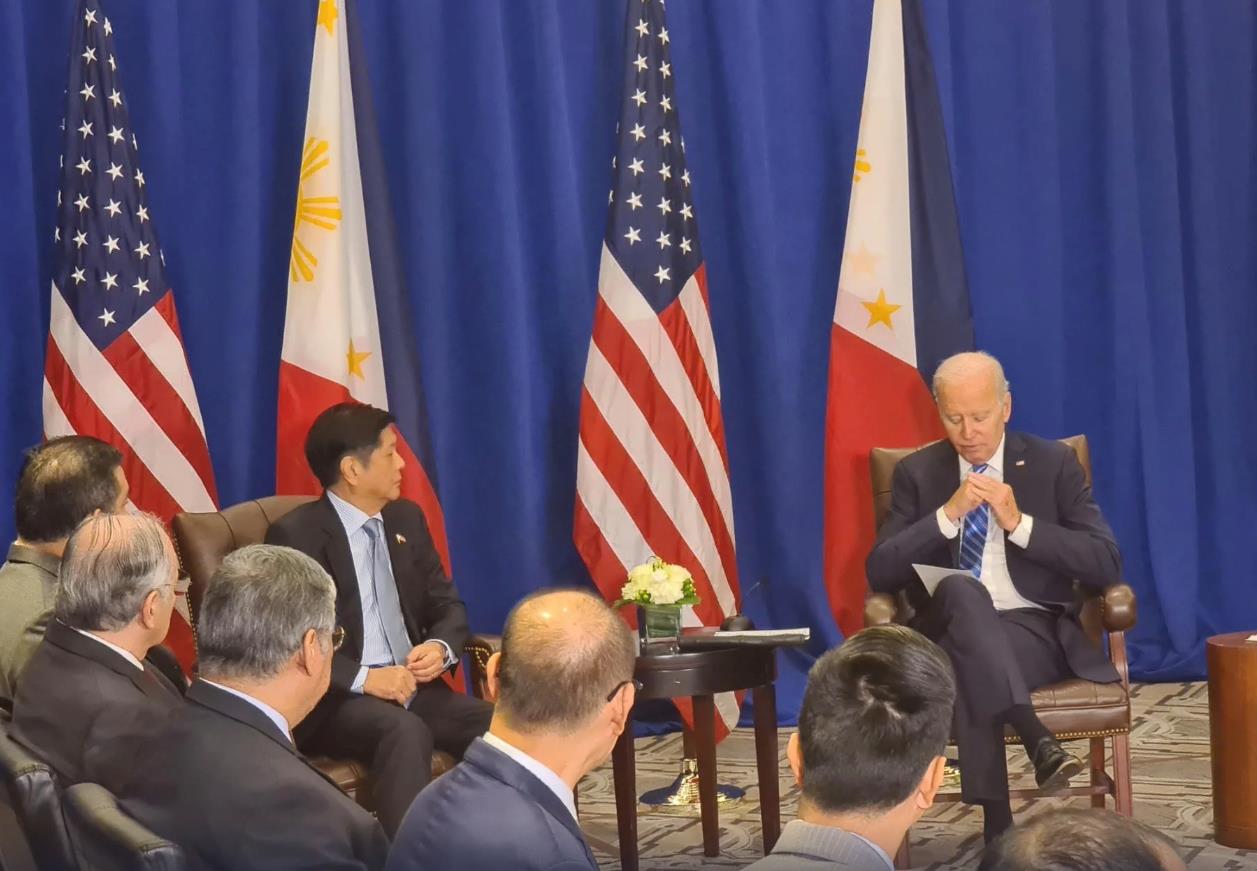(MENAFN- Asia Times)
After six years of uncertainty under former Philippine president Rodrigo Duterte, the election of President Ferdinand“Bongbong” Marcos Jr has been met with cautious optimism in Washington regarding the future of the US-Philippines alliance.
President Marcos extols the“special relationship” between the United States and the Philippines. He characterized discussions with Washington involving the Mutual Defense Treaty as a means of improving bilateral relations to meet new challenges.
Marcos also expressed his intention to expand trade and economic relations with the United States through initiatives including the Joe Biden administration's Indo-Pacific Economic Framework .
But the pro-US rhetoric espoused by the Marcos administration is not a reliable indicator of the president's commitment to the alliance. Marcos may not share Duterte's animus toward the United States, but his politics, domestic and foreign, closely resemble his predecessor's and bode just as poorly for strengthening the alliance.
Just as Duterte sought to cultivate strong economic and political ties with China while seeking a compromise over the Philippines' territorial claims in the South China Sea, Marcos is similarly appealing to Beijing.
Before assuming office, Marcos described China-Philippines relations in comparable terms to US-Philippines relations. He pledged that his administration would commit to what Duterte first termed an “independent foreign policy .”
Economic cooperation with China is a clear priority for Marcos, with the Philippines' Department of Transportation set to begin renegotiating US$4.9 billion worth of loan agreements with China. The loans are for the construction of railways as part of the former Duterte administration's“Build, Build, Build” infrastructure program.

Chinese President Xi Jinping and then-Philippine leader Rodrigo Duterte make a toast. Photo: AFP / Mark Cristino
While China is an obvious economic partner for the Philippines, the roots of Marcos' vision for economic cooperation with China likely trace back to the years of Chinese diplomatic outreach and investment in Ilocos Norte, where Marcos family members have served as governors since 1998.
Through investment in the home province of the Marcos dynasty, China cultivated personal relationships – with President Marcos, Senator Imee Marcos and her son Governor Matthew Manotoc, among others – that will be useful for influencing the administration's China policy.
The political and personal relationships between China and the Marcos family may have shaped Ferdinand Marcos Jr's perspective on the Philippines' territorial conflict with China in the West Philippine Sea. During his election campaign, Marcos dismissed the importance of the 2016 South China Sea Arbitration as a means of enforcing Philippine sovereignty.
Marcos reversed his stance on May 26 when he described the Philippines' disputed maritime borders as “a right” rather than a claim he would defend. Since that volte-face, both the Department of National Defense and the Department of Foreign Affairs have pledged to defend the Philippines' sovereignty in line with the president's messaging.
Yet the Marcos administration appears willing to sidestep issues of national sovereignty in order to strengthen the Philippines' economic relations with China. Working-level talks with China on joint oil and gas developments in the West Philippine Sea have continued despite official negotiations terminating in June.
The Marcos administration's foreign-policy flexibility is often explained as a hedging strategy . It seeks to maximize the amount of trade, assistance and political support the Philippines can receive from China and the United States without alienating either power.
As long as the Marcos administration continues to hedge, it is unlikely that the United States will be able to persuade the Philippines to advance geopolitically sensitive projects that are critical to the alliance. One such project is extending US access to military bases in the Philippines under the 2014 Enhanced Defense Cooperation Agreement .
While the United States competes with China for diplomatic influence over Philippine foreign policy, Washington faces a distinct obstacle in pushing its agenda despite the pro-US policy preferences of the majority of Filipino citizens.
Not only did Marcos secure a political mandate from the public after his landslide victory in the polls, but his administration also enjoys supermajorities in the House of Representatives and the Senate, where the president's allies and relatives occupy key posts.
The Marcos administration also actively manages dissenting public opinion and political opposition through a massive disinformation campaign , targeting left-wing political groups and activists while using lawfare to censor critical media outlets .

Philippine President Ferdinand Marcos Jr and US President Joe Biden in their first bilateral meeting in New York, September 22, 2022. Photo: Pool / Malacanang Palace
These conditions first posed major obstacles for the US-Philippines alliance under the Duterte administration. They enabled Duterte to pursue a heavily personalized foreign-policy agenda that drew the Philippines closer to China while extorting the United States to preserve even the most basic elements of the alliance.
After positioning himself as the rightful successor to the previous administration, Marcos has inherited the Duterte administration's political machinery. That will make it difficult for the United States to influence the Philippines' foreign policy through executive, legislative and public diplomatic efforts.
Under these conditions, the United States may be spared the chronic threats to alliance institutions that it faced under the Duterte administration. But without the diplomatic means to incentivize President Marcos to reduce the Philippines' foreign-policy hedging, expectations for future discussions concerning the Mutual Defense Treaty and other alliance agreements will yield modest and likely disappointing results for the United States.
Luke Lischin is a PhD student in the Political Science Department at the University of Toronto and an independent consultant on political violence in Southeast Asia.
This article was first published by East Asia Forum, which is based out of the Crawford School of Public Policy within the College of Asia and the Pacific at the Australian National University . It is republished under a Creative Commons license.
MENAFN26092022000159011032ID1104924798
Legal Disclaimer:
MENAFN provides the information “as is” without warranty of any kind. We do not accept any responsibility or liability for the accuracy, content, images, videos, licenses, completeness, legality, or reliability of the information contained in this article. If you have any complaints or copyright issues related to this article, kindly contact the provider above.